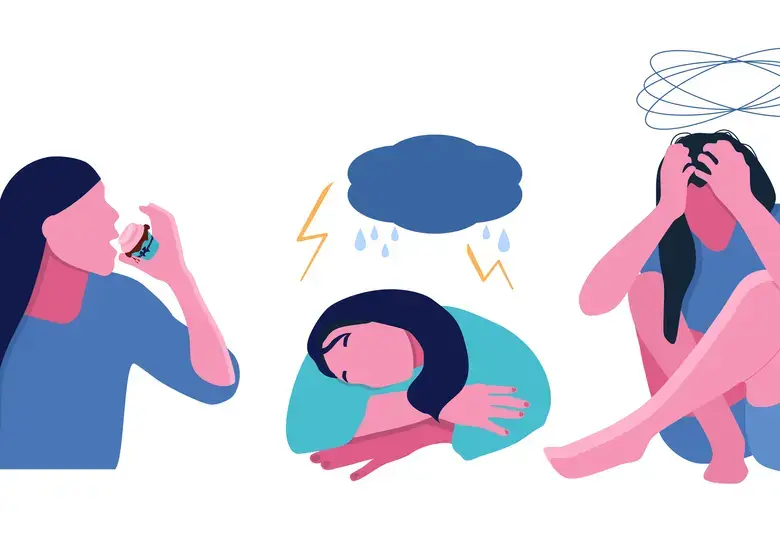People all over the world are facing COVID-19 pandemic, there are growing pieces of evidence reporting mental health problems related to COVID-19. These problems might originate from emotional response in the pandemic situation and lock-down policy in certain areas. Alcohol abuse and depression were found to be related and might be a new norm in the mental health care system.
A study in China which held in the lock-down area reported increasing hazardous use of alcohol and harmful drinking. Interestingly, depression among affected areas was found to increase along with alcohol use rate(Ahmed et al., 2020). Generally, harmful use of alcohol and alcohol dependence were found closely associated with depression and anxiety or even leading to suicide and appeared as the comorbidities with other mental health conditions. This resulted in the progression, severity, outcomes of both disorders, as well as treatment outcomes. Some studies also reported a three to four times higher lifetime prevalence of depression in people with alcohol abuse or dependence (Janika et al., 2019). The common explanations of this relationship were common genetic predisposing, gut microbiome, dysfunction in reward/stress systems and personality with some coping strategies.
The discussion on how this pandemic affected alcohol use and depression would be useful in understanding and predicting the situation worldwide. Three following main points elucidate these impacts on depression and alcohol use: lockdown policy, alcohol sales restriction, and stigmatization.
The discussion on how this pandemic affected alcohol use and depression would be useful in understanding and predicting the situation worldwide. Three following main points elucidate these impacts on depression and alcohol use: lockdown policy, alcohol sales restriction, and stigmatization.
The lockdown policy causes social isolation and causes various psychological responses such as boredom, anxiety, stress, depression, or even suicidal behavior. These isolated and stressed people usually relieve their negative feelings by using substances. Furthermore, stress also plays an important role in the onset and maintenance of alcohol abuse. Chronic alcohol use manipulates stress and reward pathways by causing neuroadaptations, which lead to hypothalamic-pituitary-adrenocortical and sympathetic adrenomedullary axes dysfunction. These people may have a decreasing ability to regulate emotion due to dysregulation of the cortisol response to stress. On the other hand, these neuroadaptations lead to increased alcohol cravings when facing stress. The trait impulsivity, the tendency to take risks without adequate forethought or reflection, is considered a risk factor in the maintenance of alcohol misuse in alcohol dependence and moderate the stress-induced alcohol consumption. Therefore, this period of isolation might lead to alcohol misuse, relapse, and alcohol use disorder during and after the pandemic.
Other at-risk patients are heavy drinkers that tend to have serious withdrawal symptoms if they stop or reduce alcohol consumption and it may be hard to access medical care (Marsden et al., 2020).However, there is no study on alcohol use public policy and its effect on suicide during the COVID-19 pandemic situation. The previous systematic review on the restriction in place for sales for alcohol demonstrated that the published literature supported the protective effect of restrictive alcohol policies on reducing suicide as well as the decreased level of alcohol involvement among suicide decedents (Xuan et al., 2016).
Otherwise, stigma in patients with substance addiction causes discrimination and sometimes under-evaluated in health service system. Most people still think that addiction is the result of weak character and poor choices although science has demonstrated brain circuit dysfunction. This pandemic situation and discrimination heightened urges to use alcohol and would be at greatly increased risk for relapse. Peers, family members, and addiction treatment providers should be alert to this possibility. Social support is crucial for persons trying to recovery, whereas social isolation is a risk factor for relapse (Volkow, 2020).
As alcohol is established to be a risk factor for depression, and depression to be a risk factor
for alcohol abuse or dependence, this leads us to the prediction that the pandemic of COVID-19 tends to make the increasing prevalence of problematic alcohol use, depression, and suicidal rate. Furthermore, the World Health Organization (WHO) states that each suicide in a population is accompanied by more than twenty suicide attempts. There is a suggestion to the governments to
give public health warnings about excessive alcohol consumption during isolation to protect prople at risk(Clay and Parker, 2020).
This spreading of the alcohol abuse and depression might lead to a new norm after this pandemic. First, the re-arrangement in mental health services to prevent over burdening might result in delayed responses to overdoses or other medical emergencies related to substance use such as severe alcohol withdrawal. Second, the limited sales of alcohol beverages could influence drinking behavior. In the short term, the researchers highlighted that the people at risk for alcohol dependence might not have acess to addiction services, especially harm reduction programs. They also suggested that investments in addiction services and services should be expanded shortly and introduced alternatives to non-beverage alcohol(Clay and Parker, 2020; Karamouzian et al., 2020). In the long term, new social practices will emerge involving alcohol consumption such as online pub dinner dates and parties) (Marsden et al., 2020). Third, telepsychiatry would play an important role in recovery because it allows the patients to have face-to-face interaction which is a crucial factor of recovery support (Volkow, 2020).
Our correspondent’s highlights from the symposium are meant as a fair representation of the scientific content presented. The views and opinions expressed on this page do not necessarily reflect those of Lundbeck.




